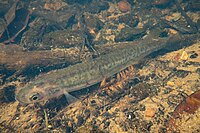
Analysis of Early-Life Growth and Age at Pubertal Onset in US Children
Sign Up to like & getrecommendations! Published in 2022 at "JAMA Network Open"
DOI: 10.1001/jamanetworkopen.2021.46873
Abstract: This cohort study examines whether there is an association between faster growth during a child’s early life and earlier pubertal onset. read more here.
Keywords: pubertal onset; growth; early life; analysis early ... See more keywords

Association of Early-Life Factors With Life-Course Trajectories of Resting Heart Rate: More Than 6 Decades of Follow-up
Sign Up to like & getrecommendations! Published in 2018 at "JAMA Pediatrics"
DOI: 10.1001/jamapediatrics.2017.5525
Abstract: Importance Higher resting heart rate (RHR) is associated with increased risk of cardiovascular and all-cause mortality. Limited attention has been paid to early-life determinants of life-course RHR. Objective To describe trajectories of RHR in the… read more here.
Keywords: rhr; age; life course; early life ... See more keywords

Reduced Oligodendrocyte Precursor Cell Impairs Astrocytic Development in Early Life Stress
Sign Up to like & getrecommendations! Published in 2021 at "Advanced Science"
DOI: 10.1002/advs.202101181
Abstract: Abstract Astrocyte maldevelopment is implicated in various neuropsychiatric diseases associated with early life stress. However, the underlying astrocytopathy mechanism, which can result in the psychiatric symptoms, remains unclear. In this study, it is shown that… read more here.
Keywords: life stress; early life; astrocytic development;

Season of birth and biomarkers of early‐life environment
Sign Up to like & getrecommendations! Published in 2020 at "American Journal of Human Biology"
DOI: 10.1002/ajhb.23532
Abstract: Early‐life conditions play an important role in human development, affecting health status and survival. Conditions in utero partly depend on the external environment and thus vary in relation to the season of birth. The aim… read more here.
Keywords: environment; early life; season birth;

Early-life behavioral features are associated with chronic emesis in rhesus macaques (Macaca mulatta)
Sign Up to like & getrecommendations! Published in 2023 at "American journal of primatology"
DOI: 10.1002/ajp.23488
Abstract: Chronic emesis (CE) is a poorly understood condition in human and nonhuman primates that negatively impacts the quality of life. Early identification of risk factors for the development of CE is likely to improve the… read more here.
Keywords: chronic emesis; macaca mulatta; early life; macaques macaca ... See more keywords

Early life‐history adaptation influences conservation approaches for facultatively amphidromous fish
Sign Up to like & getrecommendations! Published in 2019 at "Aquatic Conservation: Marine and Freshwater Ecosystems"
DOI: 10.1002/aqc.3077
Abstract: Early life history is widely recognized as the stage of fish life history where mortality is the highest. Incorrect adaptation of early life‐history characteristics to environmental conditions will result in high larval mortality and therefore… read more here.
Keywords: adaptation; early life; diadromous populations; life history ... See more keywords

Developmental toxicity induced by brodifacoum in zebrafish (Danio rerio) early life stages
Sign Up to like & getrecommendations! Published in 2022 at "Birth Defects Research"
DOI: 10.1002/bdr2.2118
Abstract: The present study mainly focused on the assessment of developmental toxicity induced by exposure to brodifacoum (BDF) in zebrafish at early life stages. read more here.
Keywords: developmental toxicity; early life; life stages; toxicity induced ... See more keywords

How does early‐life adversity shape telomere dynamics during adulthood? Problems and paradigms
Sign Up to like & getrecommendations! Published in 2022 at "BioEssays"
DOI: 10.1002/bies.202100184
Abstract: Although early‐life adversity has been associated with negative consequences during adulthood, growing evidence shows that such adversity can also lead to subsequent stress resilience and positive fitness outcomes. Telomere dynamics are relevant in this context… read more here.
Keywords: early life; life adversity; telomere dynamics; adult telomere ... See more keywords

Early life trauma increases threat response of peri‐weaning rats, reduction of axo‐somatic synapses formed by parvalbumin cells and perineuronal net in the basolateral nucleus of amygdala
Sign Up to like & getrecommendations! Published in 2018 at "Journal of Comparative Neurology"
DOI: 10.1002/cne.24522
Abstract: Early life trauma is a risk factor for life‐long disorders related to emotional processing, but knowledge underlying its enduring effect is incomplete. This study was motivated by the hypothesis that early life trauma increases amygdala‐dependent… read more here.
Keywords: early life; trauma; threat response; threat ... See more keywords

Moderate early life stress improves adult zebrafish (Danio rerio) working memory but does not affect social and anxiety-like responses.
Sign Up to like & getrecommendations! Published in 2020 at "Developmental psychobiology"
DOI: 10.1002/dev.21986
Abstract: Early life stress (ELS) is defined as a short or chronic period of trauma, environmental or social deprivation, which can affect different neurochemical and behavioral patterns during adulthood. Zebrafish (Danio rerio) have been widely used… read more here.
Keywords: anxiety; early life; stress; working memory ... See more keywords

Early‐life foraging: Behavioral responses of newly fledged albatrosses to environmental conditions
Sign Up to like & getrecommendations! Published in 2017 at "Ecology and Evolution"
DOI: 10.1002/ece3.3210
Abstract: Abstract In order to survive and later recruit into a population, juvenile animals need to acquire resources through the use of innate and/or learnt behaviors in an environment new to them. For far‐ranging marine species,… read more here.
Keywords: life foraging; behavioral responses; newly fledged; foraging behavioral ... See more keywords